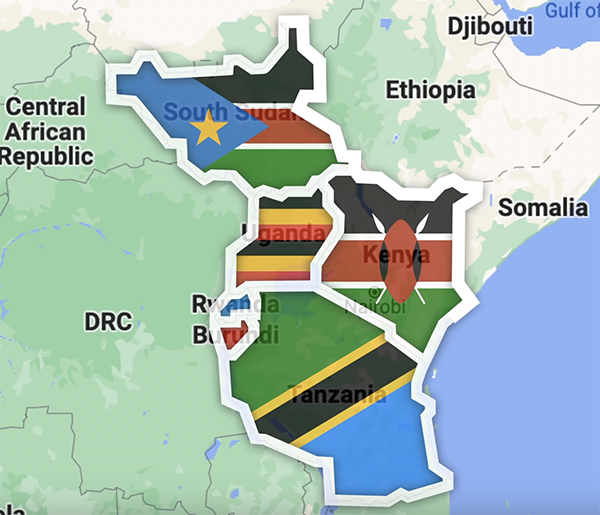Kampala — President Yoweri Kaguta Museveni has unveiled an ambitious regional integration agenda under the National Resistance Movement’s (NRM) 2026–2031 manifesto, outlining a plan to transform the East African Community (EAC) into a single political federation with one currency and one constitution within the next decade.
Themed “One People, One Destiny,” positions Uganda at the heart of East Africa’s integration drive, reaffirming Museveni’s long-standing conviction that the continent’s prosperity depends on unity, shared markets, and collective security.
It pledges to advance the establishment of a single EAC currency, harmonized governance structures, and the drafting of a common constitution that would form the basis for an East African Federation by 2031.
According to President Museveni, the initiative is not merely aspirational but a strategic economic and political roadmap rooted in the NRM’s pan-African ideology.
“Africa’s 1.4 billion people are broken into small units. Small populations mean small markets. Small markets mean low prosperity,” he noted recently, arguing that integration is the key to economic transformation and geopolitical strength.
Uganda’s vision under the manifesto aligns closely with the East African Community’s Sixth Development Strategy (2021–2026), which prioritizes the implementation of the Single Customs Territory, harmonization of fiscal policies, and macroeconomic convergence. Museveni’s new commitments go a step further, calling for full political federation to consolidate peace, security, and shared prosperity.
The President has long criticized the colonial-era fragmentation of Africa, contending that national borders continue to hinder trade and industrial growth.
He cites examples such as the unifications of Germany and Italy in the 19th century, and the modernization of China and India, to illustrate how larger political units foster development. Uganda’s current surpluses in agricultural and industrial production, he argues, can only translate into prosperity through access to wider regional markets.
The manifesto also highlights the African Continental Free Trade Area (AfCFTA) as a pillar of this integration effort, enabling Ugandan goods and services to compete across Africa without restrictive barriers.
Infrastructure projects such as the Mpondwe–Beni highway between Uganda and the Democratic Republic of Congo (DRC) are cited as practical examples of regional cooperation advancing Museveni’s vision.
Museveni’s call for federation has found resonance among several regional leaders. Kenya’s President William Ruto has emphasized the need for a single currency to boost intra-regional trade, while Tanzania’s President Samia Suluhu Hassan has underscored the role of Kiswahili in fostering unity. Rwanda’s President Paul Kagame, too, has voiced support for deeper integration, arguing that a united East Africa would wield stronger negotiating power on the global stage.
Under the NRM manifesto, Uganda commits to five key actions to drive this agenda: support the formation of the EAC Political Federation; fast-track the adoption of a single currency; eliminate non-tariff barriers across member states; promote Kiswahili as a regional lingua franca; and leverage AfCFTA frameworks to expand Uganda’s trade footprint across Africa.
Uganda’s exports to the EAC have already grown significantly, reaching USD 2.84 billion in the 2024/25 financial year. The inclusion of South Sudan and the DRC into the regional bloc further strengthens the EAC’s collective economic potential, now representing a population of over 340 million and a combined GDP exceeding $1 trillion (PPP).
While the vision faces challenges ranging from political disparities to administrative bottlenecks, Museveni insists that unity remains Africa’s only viable path to sustainable growth and security.
“Market integration alone cannot solve strategic inferiority. Political integration is the shield that protects our sovereignty,” he said.
The President warns that tribalism and sectarian divisions remain the greatest threats to the integration effort, urging citizens to embrace a continental mindset.
“Our enemies are those who push for sectarianism. They do not understand the value of integration,” Museveni emphasized.
As Uganda enters another electoral season, the integration blueprint stands as one of the most defining pillars of Museveni’s political legacy, a vision of an East Africa bound by one state, one currency, and one constitution.
Whether the dream of a federated region becomes reality by 2031 will depend on the collective will of member states and the commitment of citizens to the ideal of “One People, One Destiny.”


